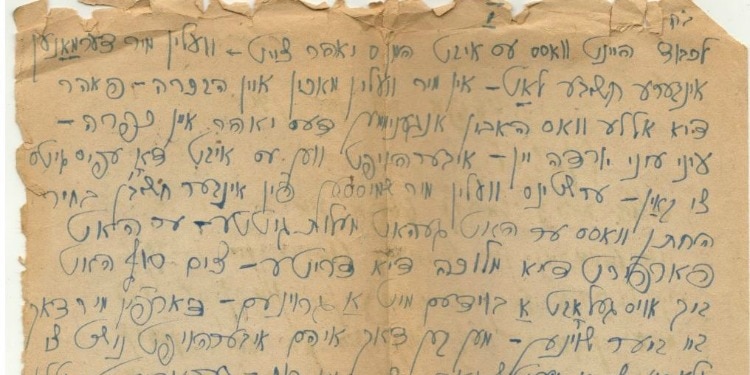The Purim Poem That Comforted Holocaust Survivors
The Fellowship | March 13, 2017

Yesterday, the Jewish people celebrated Purim, the joyous biblical holiday that remembers Queen Esther’s defeat of a Persian plot to annihilate the Jews. This holiday also provided comfort and levity to those targeted by a much more recent anti-Semitic historical period. The Times of Israel’s Cathryn J. Prince tells the story of a Purim poem written in a displaced persons hospital ward that was written to soothe fellow Holocaust survivors:
His fellow patients needed a good laugh, so Yisroel Meir Schwartz put pen to paper and began writing — first in black ink, then blue.
It was 1947 and Schwartz, who had survived several years in a traveling forced labor detail, was recovering from tuberculosis in a displaced persons (DP) hospital in Gauting, a suburb of Munich.
Now Purim was coming and it was time for some levity. The situation called for some traditional Purim grammen, or verse — performed in a call-and-response singsong shared between reader and audience. The grammen can lampoon anything and anyone, from prestigious community members to friends and family, but are often aimed at those perceived as enemies of the Jews.
“There was a large group of Holocaust survivors — patients had a synagogue full of seforim [holy texts] where they prayed and learned together during their treatments and rehabilitation,” said Yisroel’s son, Yaakov Schwartz.
“In order to uplift their spirits in their bitter situations, he composed [the grammen] and shared it with fellow patients. His motto was always to be ‘tamid b’simcha‘ — always jolly and humorous with one another,” said Schwartz.
“Your advisor also had his end this year… Himmler is the same as Hitler, but one has a Mem and one has a Tes [letters of the Hebrew alphabet]. Put them together, they are the 49 levels of impurity… Before I finish I will talk about Goebbels. Every patient agrees — Poland should have recognized who he was early on,” reads a rough English translation of the poem…
